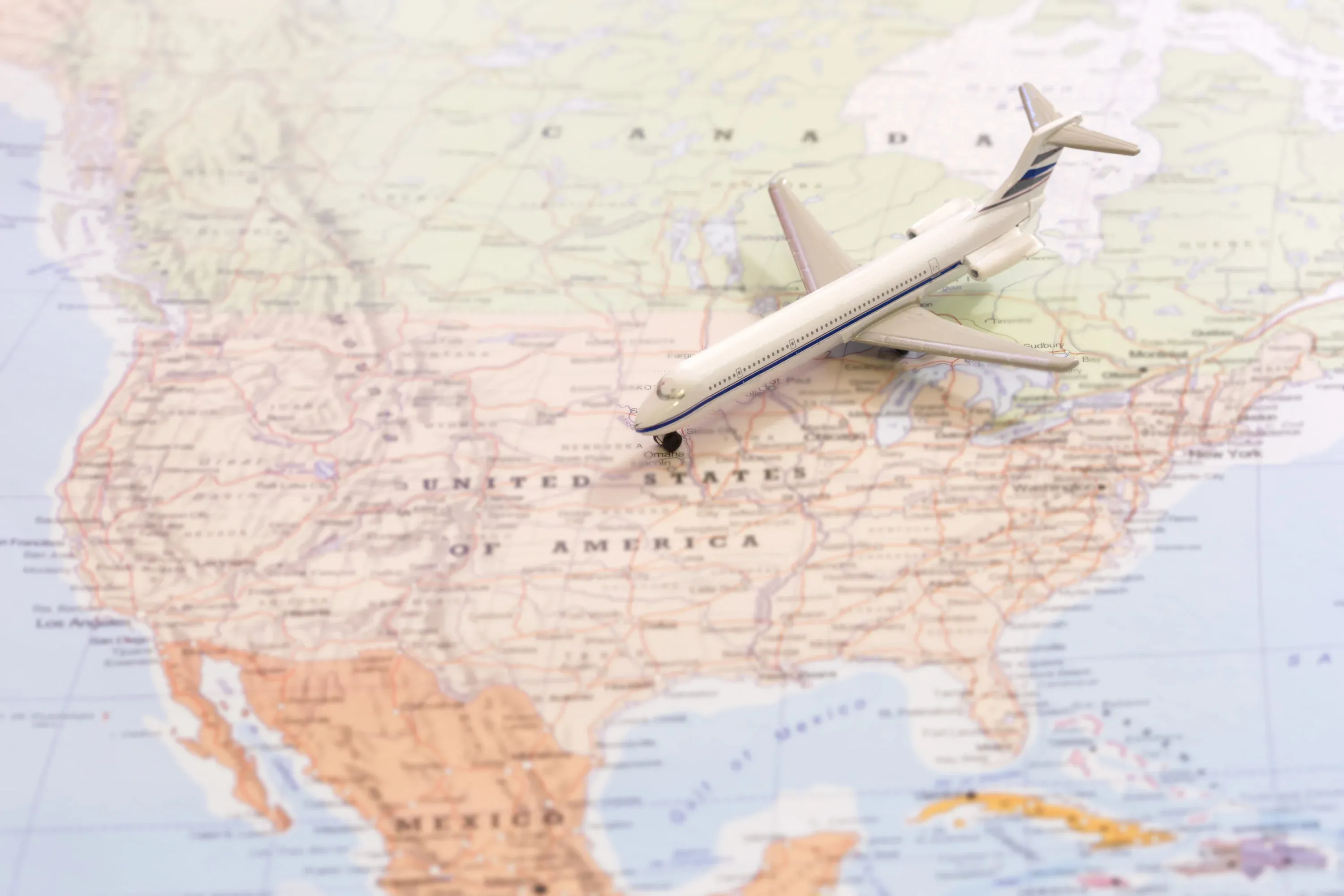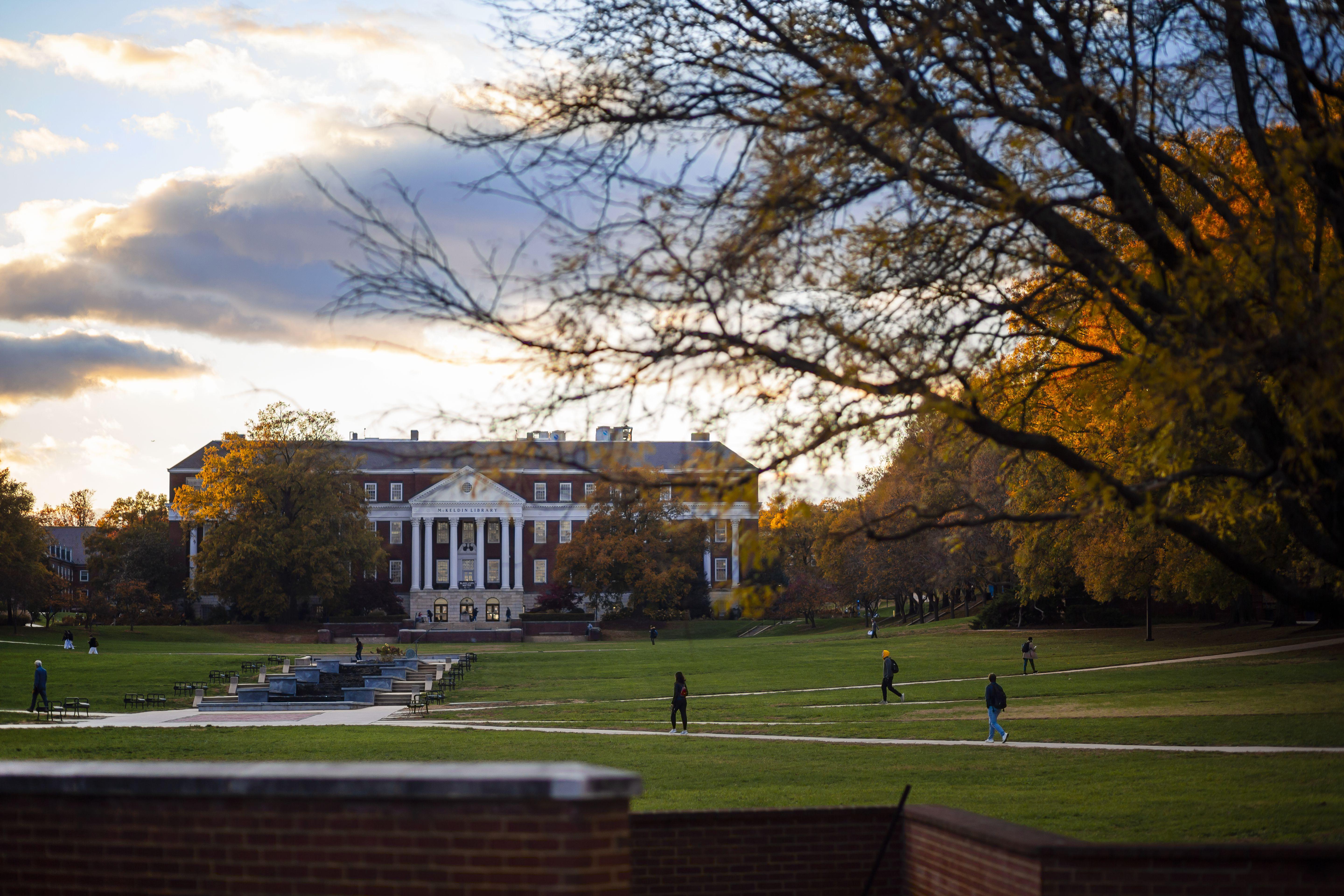Apply for Your Visa
After receipt of your immigration documentation from UMD, and payment of the required SEVIS fee (F1/J1 only), you can apply for your visa. An in-person interview is usually required. You should schedule your appointment as soon as possible. Some U.S. Embassies may have wait times for visa interviews and delays in visa processing.
To make your appointment and check wait times, visit the U.S. Visas - Department of State.
Note: You may not receive a U.S. visa more than 120 days before the reporting date on your I-20/DS-2019.
Attend the visa appointment and bring the application required documents listed below with you.
General Visa Application Required Documents
- U.S. Government Application form DS-160
- Payment of the U.S. Government Visa Application Fee
- U.S. passport-style photos for each visa applicant
- Passport(s) valid for at least 6 months into the future for each visa applicant
Additional Requirements by Visa Category
- Signed original I-20 or DS-2019 Form
- SEVIS Fee Receipt
- Proof of ties to your home country: F and J visas are non-immigrant visas. As such, you will need to show that you plan to return after your studies. You can do this by showing strong ties to your home country with evidence such as proof of property ownership, a job offer letter, or letters from family.
- Proof of financial support: You will need to present the financial documents you submitted for your I-20/DS-2019 checklist.
- Proof of Academic or Employment Status:
- Newly Admitted Student (F-1/J-1) – Admission Letter
- Any standardized test scores you submitted to UMD
- Current Student (F-1/J-1) – Official Transcript and the Confirmation of visa status letter from iTerp
- Professors, research scholars, short-term scholars and interns (J-1) - Invitation letter from your sponsoring department
- OPT/STEM OPT (F-1) – Current OPT EAD Card and offer letter or proof of employment. If your STEM OPT application is still pending, ISSS does not recommend traveling abroad.
- Post-Completion Academic Training (J-1) – Offer letter or proof of employment
Note: Citizens of Canada and Bermuda do not require visas to enter the United States as students. However, you must pay the SEVIS fee and present a valid Form I-20 at the time of admission. For more information see U.S. Department of State information for Citizens of Canada and Bermuda
Original bottom portion and a copy of the original I-797 H-1B Approval Notice and travel packet.
Appointment letter or job offer letter on university letterhead stating:
- Your position title and salary
- Academic Department
- Dates of Employment
- Brief job description
Note: individuals in H-1B status are viewed as having a dual intent when entering the U.S. Dual intent means that the H-1B holder may intend either to return home at the end of the H-1B program or to apply for immigrant status.
Mexican Citizens - Signed TN letter provided by the department, or you may present the original bottom portion and a copy of the original I-797 TN Approval Notice.
Canadian Citizens – Do not need a visa. You can enter the U.S. using your original and signed TN letter provided by the department.
Immediate family members (spouse and unmarried children under the age of 21) who will come with you to the U.S. may apply for dependent visas. You need to bring documents that prove your relationship. These can include a marriage certificate, birth certificate, or official family registry.
If your dependents go to the visa interview alone, they will need to bring copies of all the documents listed above for your visa category.
The Visa
If all goes according to plan, you will receive a visa stamp in your passport. Congratulations! Check your visa for errors before you leave the U.S. Embassy or Consulate.
You may not enter the U.S. on your F-1 or J-1 visa more than 30 days prior to the report date on your I-20/DS-2019. Keep in mind the visa itself does not guarantee admission into the U.S.; all other documents must be in order as well.
Please contact ISSS if you received a late visa appointment and will not be able to enter the U.S. by the report date on your I-20/DS-2019, or if your visa application has been denied.
Note: For J-1 visa holders, the U.S. Embassies may put your DS-2019 in a sealed envelope and staple it to your passport. We recommended that you do not open this envelope. The Immigration officer at the U.S. port-of-entry will open it and check your documents when you arrive.
If you have difficulty scheduling your visa appointment due to an unforeseen situation, such as a funeral or medical emergency, you may request an Expedited Visa Interview. Check the instructions posted on your U.S. Embassy website to schedule visa interviews. You will have to provide proof of your need for an early appointment.
Your I-20/DS2019 start date provides the necessary information you need to demonstrate your start date at UMD. Feel free to use our visa expedition letter if you feel it will assist your immigration case.
U.S. visa holders who apply for a visa stamp in a country other than their own are called “third country nationals.” Before you travel, be sure to contact the U.S. Embassy or Consulate Office in the country to check if you are eligible.
If the U.S. Embassy/Consulate denies your application, you will not be able to enter the U.S. and you will have to return to your home country.
The U.S. Embassy/Consulate may delay your application due to a prolonged background check. If so, you will have to remain in the country during the delay.
If you are thinking of applying as a third country national in Mexico or Canada, contact an ISSS advisor before making travel plans. In general, ISSS does not recommend that third country nationals apply for a U.S. visa in Mexico or Canada.
- Administrative Processing
The U.S. Embassy may inform you your visa requires Administrative Processing. This means the consular officer needs more information before deciding to issue you a visa. Administrative processing can result in significant delays in visa issuance. Contact us and your UMD department if you will be unable to arrive for the start of your program.
- Visa Denial
Contact us if your visa application has been denied
You only need the visa stamp in your passport to enter into the United States. Once you are in the U.S. the visa stamp may expire as long as you have:
- A passport that is valid for at least six months into the future
- An unexpired I-20 (for F-1s) or DS-2019 (for J-1s)
- An I-94 that indicates D/S (F-1 and J-1 only) or a date into the future
- A valid I-797 Approval Notice or valid I-94 for H-1B, O-1, E-3 or TN
If you leave the country, you will need to apply for a new visa before returning to the United States.

Arrival to U.S. - U.S. Customs and I-94
What to expect when you land in the U.S.
